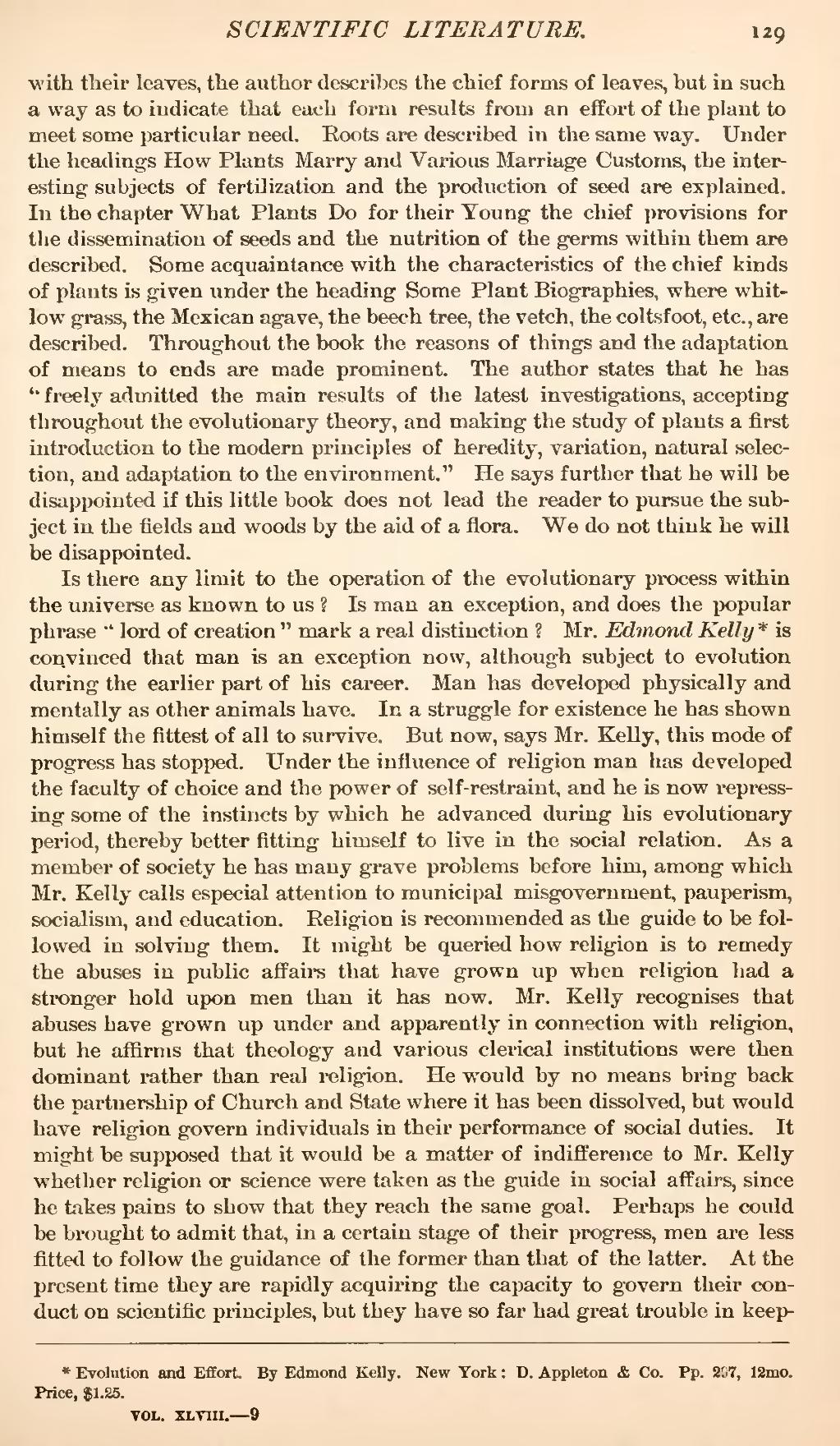with their leaves, the author describes the chief forms of leaves, but in such a way as to indicate that each form results from an effort of the plant to meet some particular need. Roots are described in the same way. Under the headings How Plants Marry and Various Marriage Customs, the interesting subjects of fertilization and the production of seed are explained. In the chapter What Plants Do for their Young the chief provisions for the dissemination of seeds and the nutrition of the germs within them are described. Some acquaintance with the characteristics of the chief kinds of plants is given under the heading Some Plant Biographies, where whitlow grass, the Mexican agave, the beech tree, the vetch, the coltsfoot, etc., are described. Throughout the book the reasons of things and the adaptation of means to ends are made prominent. The author states that he has "freely admitted the main results of the latest investigations, accepting throughout the evolutionary theory, and making the study of plants a first introduction to the modern principles of heredity, variation, natural selection, and adaptation to the environment." He says further that he will be disappointed if this little book does not lead the reader to pursue the subject in the fields and woods by the aid of a flora. We do not think he will be disappointed.
Is there any limit to the operation of the evolutionary process within the universe as known to us? Is man an exception, and does the popular phrase "lord of creation" mark a real distinction? Mr. Edmond Kelly[1] is convinced that man is an exception now, although subject to evolution during the earlier part of his career. Man has developed physically and mentally as other animals have. In a struggle for existence he has shown himself the fittest of all to survive. But now, says Mr. Kelly, this mode of progress has stopped. Under the influence of religion man has developed the faculty of choice and the power of self-restraint, and he is now repressing some of the instincts by which he advanced during his evolutionary period, thereby better fitting himself to live in the social relation. As a member of society he has many grave problems before him, among which Mr. Kelly calls especial attention to municipal misgovernment, pauperism, socialism, and education. Religion is recommended as the guide to be followed in solving them. It might be queried how religion is to remedy the abuses in public affairs that have grown up when religion had a stronger hold upon men than it has now. Mr. Kelly recognises that abuses have grown up under and apparently in connection with religion, but he affirms that theology and various clerical institutions were then dominant rather than real religion. He would by no means bring back the partnership of Church and State where it has been dissolved, but would have religion govern individuals in their performance of social duties. It might be supposed that it would be a matter of indifference to Mr. Kelly whether religion or science were taken as the guide in social affairs, since he takes pains to show that they reach the same goal. Perhaps he could be brought to admit that, in a certain stage of their progress, men are less fitted to follow the guidance of the former than that of the latter. At the present time they are rapidly acquiring the capacity to govern their conduct on scientific principles, but they have so far had great trouble in keep-
- ↑ Evolution and Effort. By Edmond Kelly. New York: D. Appleton & Co. Pp. 297, 12mo. Price, $1.25.
